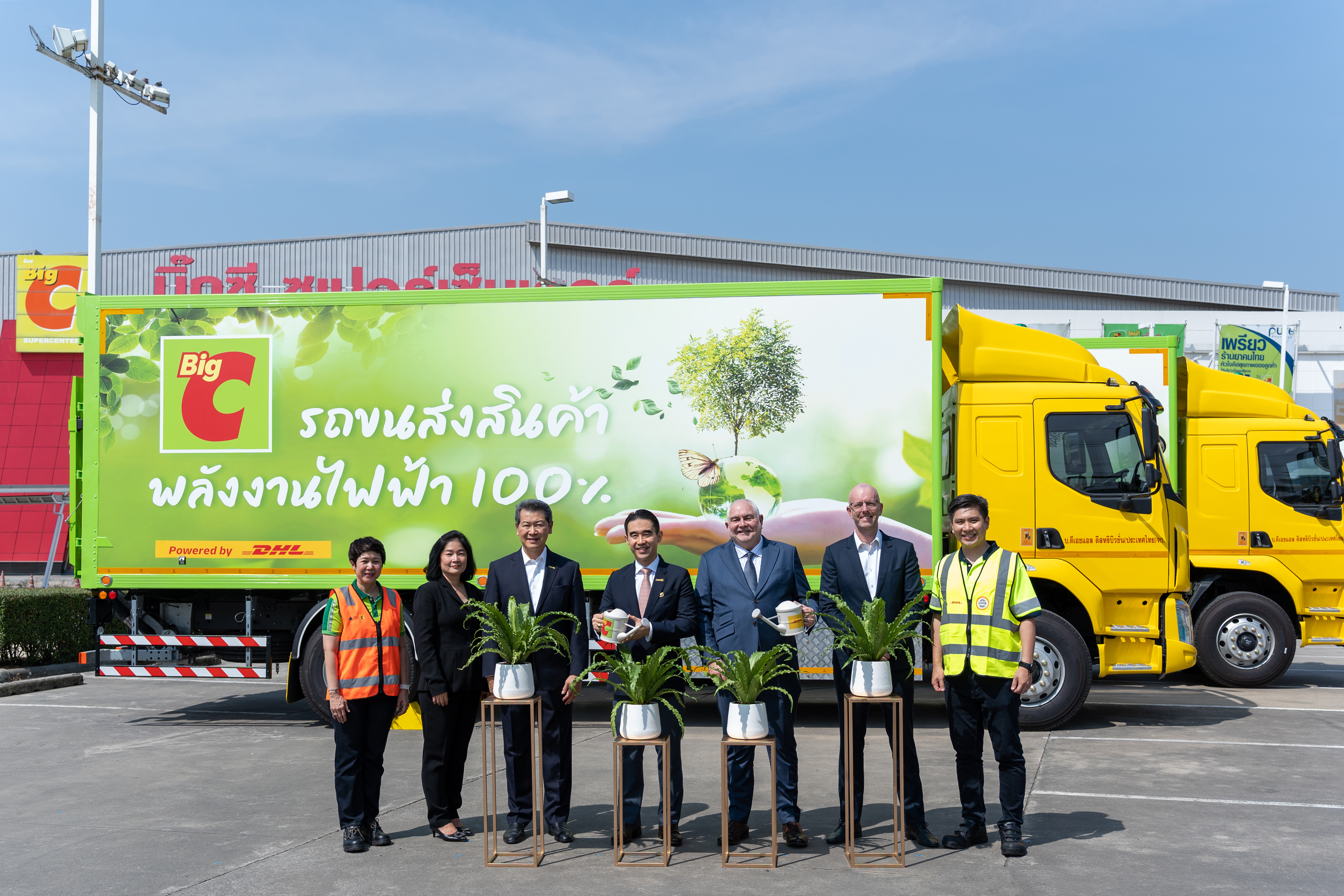Big C and DHL Supply Chain Thailand deploys electric trucks to reduce carbon emissions
- Written by The Southern Cross
In the near future, other types of electric trucks are being considered for the fleet to transport Big C products to stores in various locations.

The partnership between Big C and DHL Supply Chain Thailand is centered on their mutual goal to reduce carbon footprint. This deployment of electric trucks represents yet another significant step forward in their collaborative effort to build a sustainable supply chain. The trucks are powered by 100 percent electricity.
Aswin Techajareonvikul, Chief Executive Officer and President of BJC Big C said, "BJC Big C operates business in parallel with creating a sound economy and good quality of life for the community and society. The company aims to achieve net zero emissions by 2050. This year, Big C has joined forces with DHL Supply Chain Thailand to have electric vehicles (EV) to transport and distribute goods to help reduce carbon dioxide emissions and to focus on becoming a green logistics organization. Big C will pilot the use of electric trucks to transport and distribute goods at three Big C branches in Bangkok, namely Big C Saphan Khwai, Big C Ratchada, and Big C Ratchadamri. We plan to expand routes and increase the number of vehicles in the long term in Bangkok and other provinces. This collaboration is a joint drive to create an environmentally sustainable supply chain."
Steve Walker, CEO of DHL Supply Chain Thailand Cluster, stated, "We are very pleased to join Big C on this journey as we have shared values and vision for protecting the planet and improving people's lives. DHL Supply Chain aspires to be a leader and is committed to being a responsible logistics partner in creating a sustainable future in the region. We have been supporting Big C for the past 20 years and currently deliver their products to over 1,800 stores nationwide. We hope to help them advance their supply chain operations by providing clean, green, and safe solutions to achieve environmental sustainability goals."
The electric trucks will be managed by the DHL Connected Control Tower, which utilizes advanced technologies such as the Paragon Route Optimization System, Transport Management System, Telematics, and the MySupplyChain digital platform to maximize transport efficiency.
Scott Gerrie, Transport Vice President of DHL Supply Chain Thailand Cluster, added, "Our transport team is constantly looking for innovative ways to help customers lower carbon emissions. Apart from the current EV trucks, we are also looking to install Trailar solar mats on the EV fleet and use fuel additives for internal combustion engine trucks to reduce carbon emissions. We hope to provide greater impact in the future by increasing fleet innovation and utilization within our own fleet and those of our sub-contractors."
Hashtag: #DHLSupplyChainThailand
The issuer is solely responsible for the content of this announcement.
About DHL - The logistics company for the world
DHL is the leading global brand in the logistics industry. Our DHL divisions offer an unrivalled portfolio of logistics services ranging from national and international parcel delivery, e-commerce shipping and fulfillment solutions, international express, road, air and ocean transport to industrial supply chain management. With about 380,000 employees in more than 220 countries and territories worldwide, DHL connects people and businesses securely and reliably, enabling global sustainable trade flows. With specialized solutions for growth markets and industries including, technology, life sciences and healthcare, engineering, manufacturing & energy, auto-mobility and retail, DHL is decisively positioned as "The logistics company for the world".
DHL is part of Deutsche Post DHL Group. The Group generated revenues of more than 81 billion euros in 2021. With sustainable business practices and a commitment to society and the environment, the Group makes a positive contribution to the world. Deutsche Post DHL Group aims to achieve net zero-emissions logistics by 2050.
